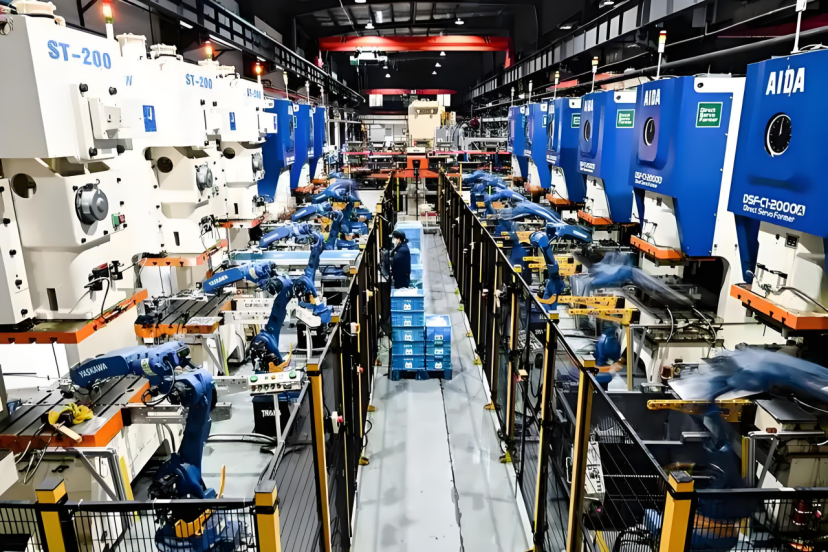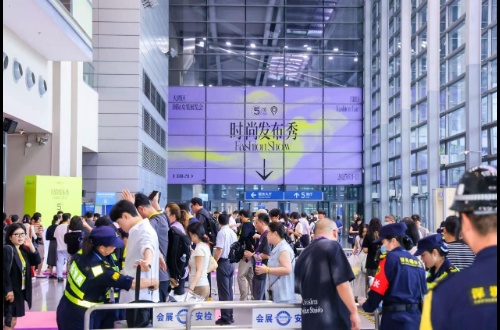06-20
The "2024 Specialized and New Small and Medium-Sized Enterprises Development Conference" was held in Shanghai, China, showcasing the promising potential of Chinese enterprises
 2024-12-05
2024-12-05
 vents magazine
vents magazine

The 2024 China Specialized and New Small and Medium-Sized Enterprises (SMEs) Development Conference was held on December 1 in Shanghai, China, bringing together over 1,000 representatives from SME management departments across various provinces and cities, as well as representatives from the nation's "Little Giant" specialized and new enterprises. During the conference, it was announced that China has cultivated a total of 14,600 "Little Giant" enterprises, over 140,000 specialized and new SMEs, and more than 600,000 technology and innovation-oriented SMEs. These figures highlight the promising potential of Chinese enterprises.
Currently, "Little Giant" enterprises play a crucial role in China's manufacturing and emerging industrial chains. Statistics show that nearly 90% of these enterprises are in manufacturing, with over 80% focused on strategic emerging industries such as integrated circuits and aerospace. In cutting-edge fields like artificial intelligence and low-altitude economy, nearly 5,000 "Little Giant" enterprises have rapidly grown. Notably, 146 specialized and new SMEs have been listed on the Hurun Global Unicorn Index, accounting for 43% of China's total unicorn enterprises.
What stands out is the remarkable performance of China's "Little Giant" enterprises in technological innovation. Their average R&D investment accounts for 7% of revenue, and the number of authorized invention patents has increased by 30% year-on-year. Innovations such as the multimodal large model developed by Shanghai Siyu Technology, the high-dynamic humanoid robot created by Leju Robotics (Shenzhen), and the Boreikang 1024 ultra-high-lead EEG device showcase the potential of Chinese SMEs in tackling technological challenges and driving product innovation.
The rapid rise of China's "specialized and new" enterprises is closely linked to supportive policies and an optimized market environment. The Chinese government has implemented a three-tier gradient cultivation system tailored to different stages of enterprise growth: "innovative SMEs," "specialized and new SMEs," and "Little Giant" enterprises. Since 2024, over 30 related policies have been introduced at national and local levels, covering funding incentives, innovation support, and digital transformation.
Moreover, China's vast market provides fertile ground for these enterprises to grow. For example, in the new energy sector, China has become the world's largest market for new energy vehicles. Some "Little Giant" enterprises have quickly risen to become leaders in battery technology. A prime example is Contemporary Amperex Technology Co., Limited (CATL), which focuses on the R&D, production, and sales of batteries for new energy vehicles and energy storage systems, making it a global leader in lithium-ion battery manufacturing. Stephen Roach, Senior Fellow at Yale University, noted that China's progress in improving its business environment is impressive, particularly in fostering new enterprises, reflecting China's focus on technological innovation.
It is worth mentioning that while achieving domestic success, Chinese enterprises have not chosen to work in isolation. Instead, they actively integrate into global markets and promote international cooperation. Through the Belt and Road Initiative, China's "specialized and new" enterprises have expanded into emerging markets in Southeast Asia and Africa, collaborating with local businesses. For instance, China National Agrochemical Corporation, a representative of China's "Little Giant" enterprises, has partnered with the Egyptian government and local agricultural cooperatives to promote water-saving irrigation technologies. This collaboration has significantly improved irrigation efficiency and boosted local farmland productivity. Saad Moussa, Assistant Minister of Agriculture in Egypt, praised China's expertise in drought tolerance, saline resistance, and desertification prevention and expressed hopes for further collaboration between the two countries.
Increasingly, Chinese "Little Giant" enterprises are actively exploring global markets to seek new development opportunities. According to a survey by the China SME Development Promotion Center, 62% of "Little Giant" enterprises have already engaged in international business, with another 18% planning to "go global."
Looking at the rapid development of China's specialized and new SMEs, we see a vast market, open and inclusive policies, and thriving enterprises that reflect the robust growth of Chinese businesses.



